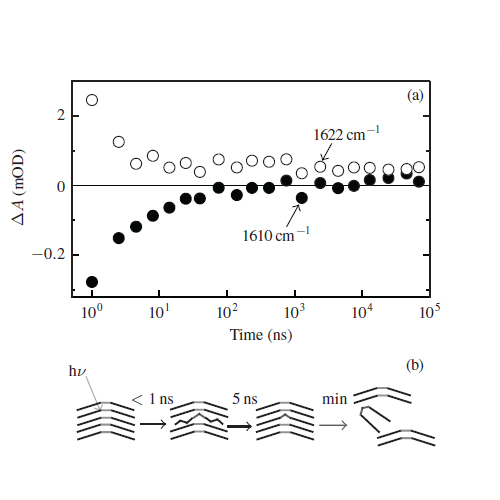Amyloid-Like Structures Formed by Azobenzene Peptides: Light-Triggered Disassembly
12-Jul-2012
Spectroscopy, 2012, doi:10.1155/2012/108959, Volume 27 (2012), Issue 5-6, Pages 387-391 published on 12.07.2012
Spectroscopy, online article
Spectroscopy, online article
The light-driven disassembly process of amyloid-like structures formed by azobenzene model peptides is studied by time-resolved mid-IR spectroscopy from nanoseconds to minutes. The investigated peptide consists of two amino acid strands connected by the azobenzene switch. The peptides aggregate to amyloid-like structures when the azobenzene chromophore is in the trans-conformation. Illumination, resulting in a trans- to cis-isomerization of the azobenzene, leads to disaggregation of the aggregated structures. After optical excitation and isomerization of the azobenzene, one finds absorption changes which recover to a large extent on the time scale of few nanoseconds. These early absorption transients are assigned to the relaxation of vibrational excess energy (heat) or to structural rearrangements of isomerized azobenzene and the aggregated surroundings. It is only on the time scale of minutes that spectral signatures appear which are characteristic for the disassembly of the aggregated structure.











